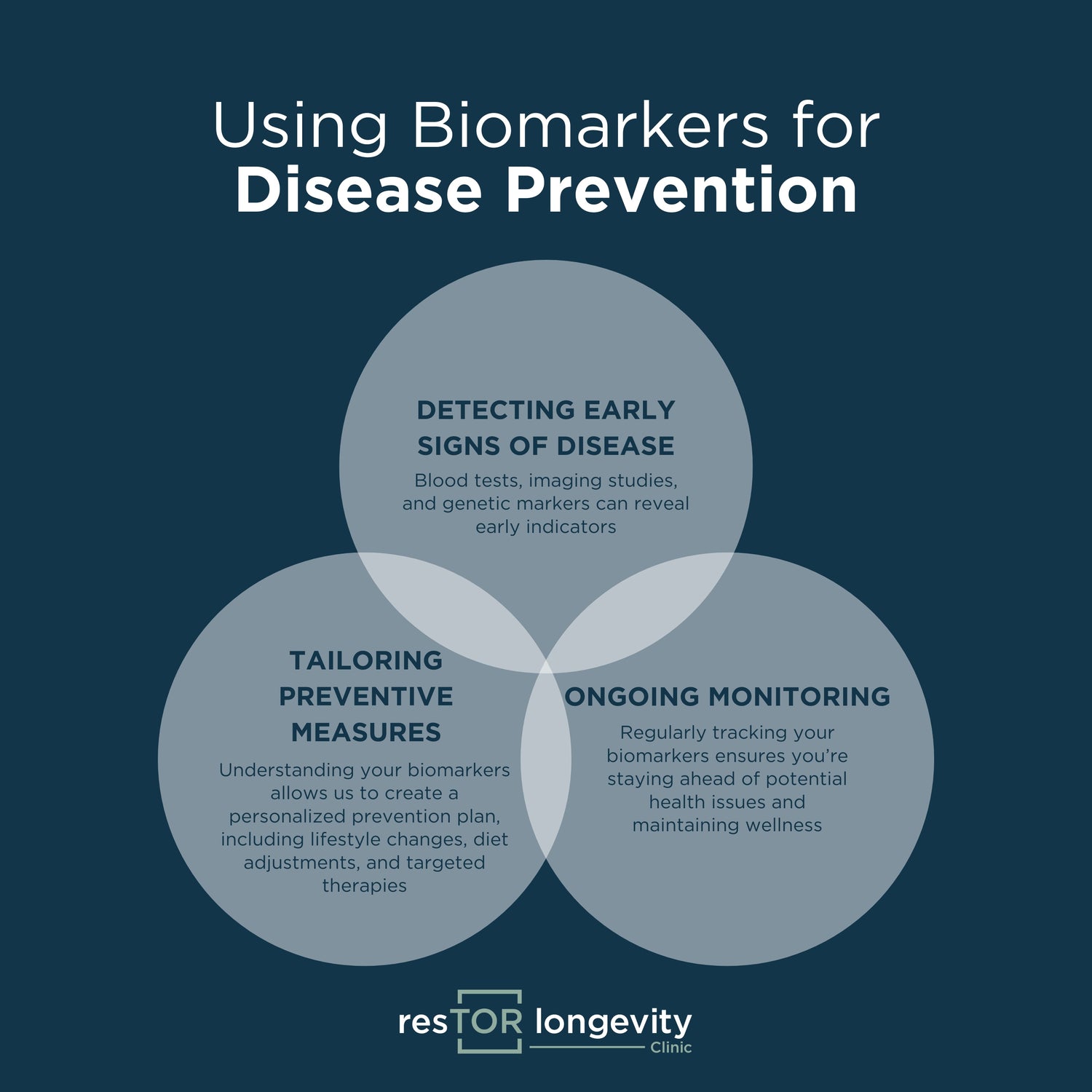Did you know that preventing disease can be as simple as understanding your body’s unique signals? Biomarkers are powerful indicators that reveal early warning signs and help us make informed health decisions. This post dives into how you can leverage biomarkers to protect your health, personalize preventive measures, and stay on track for a healthier future. We'll explore how biomarkers can identify early signs of major health issues, tailor preventive actions uniquely to you, and how to continuously monitor your health. By the end of this guide, you'll understand how to harness these valuable tools for optimum wellness and prevention.
Understanding Biomarkers
Biomarkers, or biological markers, serve as indicators of biological processes, pathogenic processes, or pharmacologic responses to a therapeutic intervention. They can be found in blood tests, imaging studies, or tissue samples, providing essential insights into our health. By identifying these markers early, we can take proactive action to prevent disease before it develops.
Types of Biomarkers
A variety of biomarkers are utilized in healthcare to signal health conditions:
- Blood Biomarkers: Regular blood tests can reveal levels of cholesterol, blood sugar, and inflammation indicators which show the risk of cardiovascular diseases and diabetes.
- Genetic Biomarkers: These are indicators found within your DNA that can predict susceptibility to inherited diseases, including cancer and cardiomyopathy.
- Imaging Biomarkers: Imaging techniques like MRI or X-rays can pick up subtle changes in body organs that may indicate early disease states.
1. Detecting Early Signs of Disease
Understanding biomarkers grants the ability to see potential health issues well before they manifest significantly. For instance:
- Diabetes: Elevated blood glucose levels can be an early warning sign, occurring long before symptoms arise. Regular glucose monitoring can show how well your body is managing sugar.
- Cardiovascular Health: A lipid panel will reveal cholesterol levels, which are pivotal in cardiovascular health, allowing interventions before heart disease occurs.
- Cancer: Some tumors release markers into the bloodstream that can be detected early, including prostate-specific antigen (PSA) for prostate cancer and CA-125 for ovarian cancer. These tests can lead to early detection when treatment is most effective.
2. Tailoring Preventive Measures
The next benefit of biomarkers is using the data from these tests to create a personalized prevention plan.
A. Lifestyle Changes
Understanding your unique biomarkers can dictate lifestyle adjustments. For example, if you have high cholesterol:
- Reducing saturated fats in your diet can decrease cholesterol levels.
- Increasing your physical activity. Regular exercise can improve heart health and reduce cholesterol levels.
- Stress management techniques. High stress can affect many biomarkers, including inflammation and blood pressure.
B. Diet Adjustments
Personalizing a diet plan based on your biomarkers is crucial for effective disease prevention.
- If your biomarkers indicate inflammation, consider incorporating anti-inflammatory foods like salmon, leafy greens, and nuts into your diet.
- For high blood sugar markers, a low-glycemic diet may be beneficial, focusing on whole grains and legumes.
C. Targeted Therapies
Biomarkers can indicate the effectiveness of certain therapies and medications, allowing healthcare providers to tailor treatments accordingly.
- For instance, determining whether a patient has specific genetic markers through testing could guide oncologists in choosing targeted cancer therapies that yield better outcomes.
3. Ongoing Monitoring
Regular tracking of your biomarkers is essential to ensure you stay ahead of potential health issues.
- Annual health assessments that include blood panels and risk screening can help spot trends early.
- Quarterly follow-ups with a healthcare professional can identify any changes that may signal emerging issues.
- Continuous glucose monitoring is especially useful for individuals at risk for diabetes, allowing for real-time data.
Implementing Biomarkers in Your Health Strategy
Creating a health strategy involves working with a qualified healthcare provider. Here are some steps you can take:
Step 1: Schedule a Comprehensive Health Assessment
Start by booking your initial appointment with a healthcare provider. This visit will likely include:
- A thorough review of your medical history.
- Initial blood tests to establish baseline biomarkers.
Step 2: Understand Your Results
Upon receiving your test results, have a detailed discussion with your healthcare provider to interpret:
- Which biomarkers indicate risk for specific diseases.
- Recommendations for lifestyle adjustments and additional testing if necessary.
Step 3: Develop Your Personalized Health Plan
Work with your healthcare provider:
- Set realistic long-term health goals based on your biomarkers.
- Create a specific action plan with defined steps for improving your health profile.
Step 4: Regular Monitoring
Implement regular check-ins:
- Schedule routine blood tests to track changes in your biomarkers over time.
- Adjust your lifestyle strategies in collaboration with your healthcare provider to stay aligned with your health objectives.
Valuable Resources for Continuous Monitoring
Leverage technology and tools to assist with ongoing health monitoring:
- Mobile Health Apps: Track your diet, exercise, and biomarker measurements.
- Wearable Health Devices: Utilize smartwatches or fitness trackers to monitor physical activity, heart rate, and even stress levels.
Important Considerations
Implementing biomarker testing involves collaborating closely with your healthcare provider to ensure:
- Appropriate tests are selected based on personal risk factors.
- Studies are up-to-date. Biomarker research is ongoing; new discoveries can influence health strategies.
- Ethical approaches to testing and privacy considerations. Your health data must be handled confidentially and securely.
The Future of Biomarker Research
As technology continues to evolve, the potential for using biomarkers in disease prevention expands:
- Advancements in technology and research will likely lead to more non-invasive and efficient testing methodologies.
- Artificial intelligence and machine learning are increasingly being integrated to analyze large sets of biomarker data, predicting health trends and outcomes at a population level.
Wrapping It Up: What Changes Can You Make at Home?
By understanding and utilizing biomarkers effectively, you empower yourself to take charge of your health journey. From recognizing early diseases to tailoring personalized prevention strategies, the proactive approach can lead to better health outcomes.
- Regularly monitor your biomarkers to stay ahead of potential health risks.
- Embrace lifestyle and diet changes that resonate with your individual health profile.
- Schedule regular appointments with healthcare providers to ensure you're on track.



